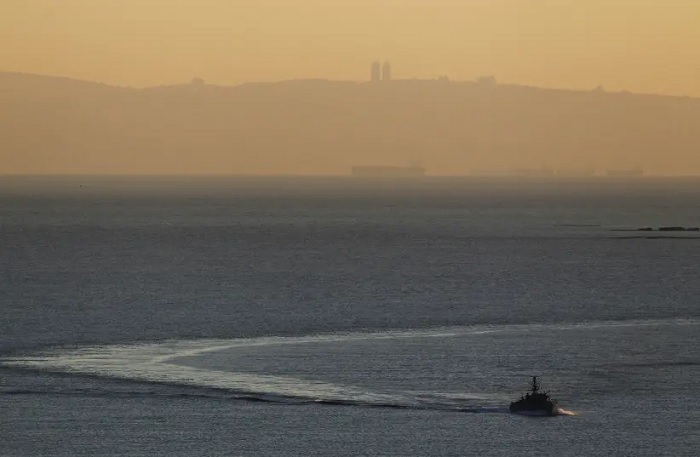
Israel’s energy minister, overseeing the talks with Lebanon, said Lebanon had now changed its position seven times and was contradicting its own assertions.
Lebanon’s army chief said on Friday that there would be no compromise on the country’s sovereignty in maritime border negotiations with Israel, the Saudi-based Arab News reported.
Israel continues to launch threats to attack Lebanon and tamper with the nation’s internal stability, said Armed Forces Commander, General Joseph Aoun, two days ahead of Lebanon’s Independence Day.
President Michel Aoun on Thursday specified Lebanon’s starting point for demarcating its sea border with Israel under US-mediated talks, in the first public confirmation of a stance sources say increases the size of the disputed area.
Israel and Lebanon launched the negotiations last month with delegations from the long-time foes convening at a UN base to try to agree on the border that has held up hydrocarbon exploration in the potentially gas-rich area.
“77 years of independence and Lebanon is currently going through an unprecedented critical and difficult phase on the political, economic and social levels,” the general said, referencing the recent massive accidental detonation of explosives that claimed the lives of hundreds in Beirut and the economic and health crisis caused by the global pandemic.
The army chief said everyone in Lebanon is counting on the military to face “danger and bury sedition,” vowing that any attempt that threatens civil peace would not be tolerated.
A presidency statement said Aoun instructed the Lebanese team that the demarcation line should start from the land point of Ras Naqoura as defined under a 1923 agreement and extend seaward in a trajectory that a security source said extends the disputed area to some 2,300 square km (888 sq miles) from around 860 sq km.
Israel’s energy minister, overseeing the talks with Lebanon, said Lebanon had now changed its position seven times and was contradicting its own assertions.
“Whoever wants prosperity in our region and seeks to safely develop natural resources must adhere to the principle of stability and settle the dispute along the lines that were submitted by Israel and Lebanon at the United Nations,” Yuval Steinitz said.
Any deviation, Steinitz said, would lead to a “dead end”.
Last month sources said the two sides presented contrasting maps for proposed borders. They said the Lebanese proposal extended farther south than the border Lebanon had years before presented to the United Nations and that of the Israeli team pushed the boundary farther north than Israel’s original position.
The talks, the culmination of three years of diplomacy by Washington, are due to resume in December.
Israel pumps gas from huge offshore fields but Lebanon, which has yet to find commercial gas reserves in its own waters, is desperate for cash from foreign donors as it faces the worst economic crisis since its 1975-1990 civil war.
 Eurasia Press & News
Eurasia Press & News



